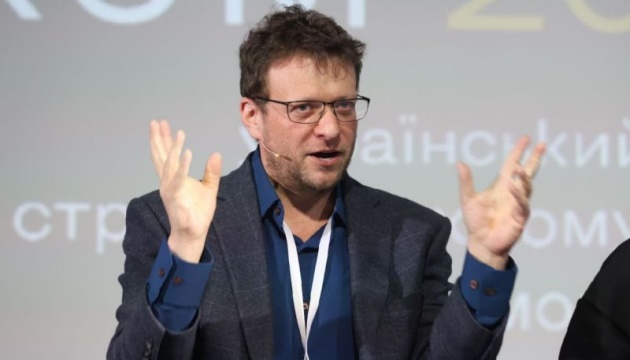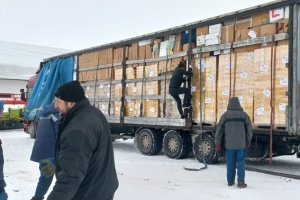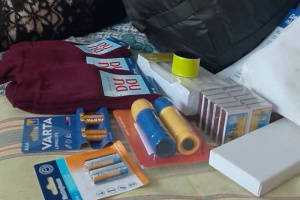
Information Ramstein: Western democracies must unite not to lose to authocracies
This was told by the British journalist and researcher of propaganda and Russia Peter Pomerantsev in the podcast (Un) Safe Country, as reported by the Center for Strategic Communication.
“The basic principle: to compete with the authoritarian machine in the information war — be it China or Russia — democracies must work together. We must understand what our strength is,” the expert believes.
Pomerantsev reminded that the idea of the Information Ramstein belonged to him. It was based on an extensive study run for the United States in the first months of the war. “After we finished this extensive study, I gave an interview to Ukrainska Pravda and mentioned the Informational Ramstein. Then the idea was picked up by politicians. It has been transformed, but the basic principle remains the same,” he said.
Russia and China are already beginning to cooperate in the information space, exchange arguments, information. Russia and Syria have been doing this for a long time.
“These are informal information alliances, but they work together. Democracies should also do this (create informal information alliances — ed.), based on our principles and values,” the researcher believes.
At the same time, he understands the complexity of the process, but to ensure democracy, allies must act much more coherently. “It’s hard to get agencies even within the same country to work together, let alone different countries. It is for this reason that we use Ramstein — an example from the military sphere, where it worked,” Pomerantsev said.
However, in the information sphere, the challenges will be somewhat different from those in the military one. “But the principle will remain the same: if democracies are going to win in the 21st century (and there is no guarantee that they will – perhaps Russia and China will win the 21st century), then we will have to work together in the information space,” he added.
Pomerantsev believes that this work should begin with an analysis of how allies can help each other. Moreover, in the process of work, it is necessary to determine priorities, and who has the resources to implement them: what can America do? What about Ireland? What can all other countries do to help the world win this war? It is important to select the right goals: to decide which countries and audiences are important, determine what exactly needs to be conveyed to them, understand what the ultimate goal is, and think about what information assets can bring it closer.




